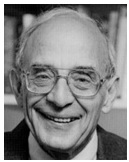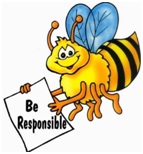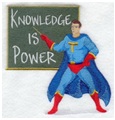|
 |
|
 |
Chris Argyris and Donald Schön, Organizational Learning II (1996) Argyris was an American professor at Harvard Business School and leading expert on organizational learning (pictured right) who died in 2013. Schön (pictured right below) was a professor at MIT in Boston, USA, who died in 1997.
See also... Chris Argyris in the Management Gurus section.
Book summary There are two approaches to learning:
Characteristics of Model I 1. Defensive routines These are negative actions and ways of thinking that prevent learning and are reinforced by:
They also lead to:
2. Single loop learning (where improvement results from detecting and correcting problems).
Characteristics of Model II This is the approach used by a learning
organization and has another type of learning...
Double loop learning This identifies:
Model II learning is vital to business success and requires:
a) inquiry Continually challenging values, attitudes and strategies (the basis of double loop learning – see above). b) teamwork People interacting and co-operating in groups.
c) thought (linked to action).
d) openness Free exchange of relevant information.
e) support Giving rewards, resources and encouragement for learning. f) responsibility People being responsible for their own learning and problems, not blaming others for them.
g) experience Learning from successes and failures, and external factors (like competitors’ actions). h) knowledge Sharing power with anyone who has relevant knowledge.
Key quotes on the learning organization It is not possible to deal effectively with any subject if it is not discussable and if its undiscussability is also undiscussable. An organization may be said to learn when it acquires information (knowledge, understanding, know-how, techniques, or practices) of any kind and by whatever means. |
|
|
||
|
|
|
||
|
||
| Copyright © wisdomtowin.com All Rights Reserved | ||
|









